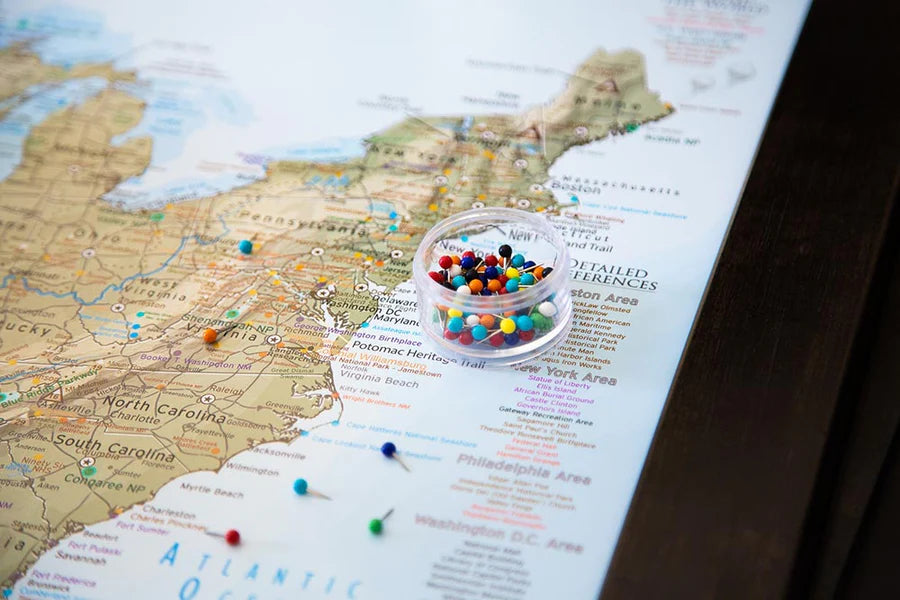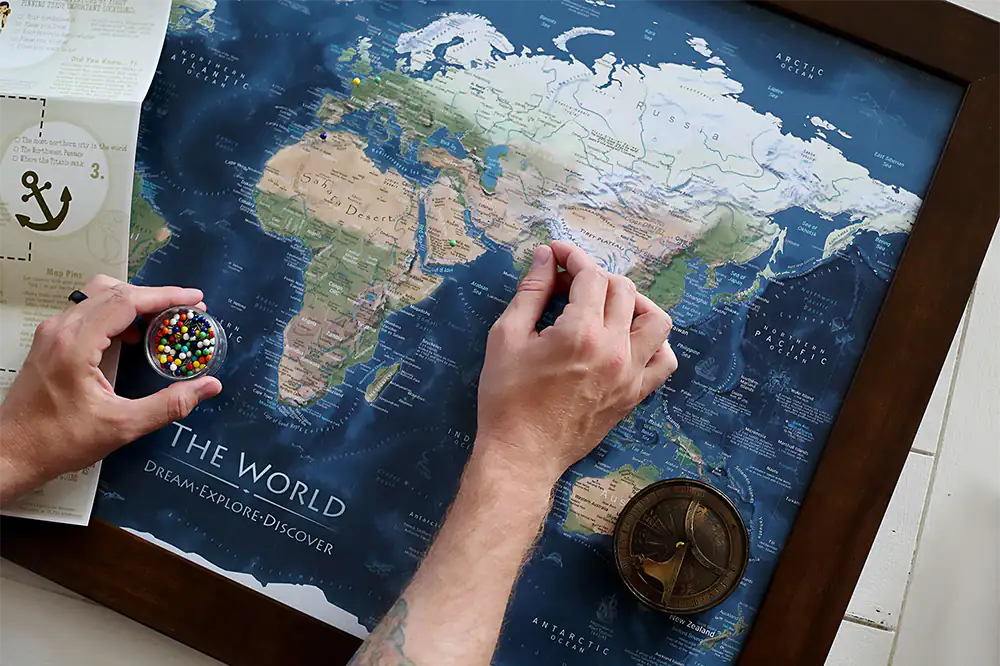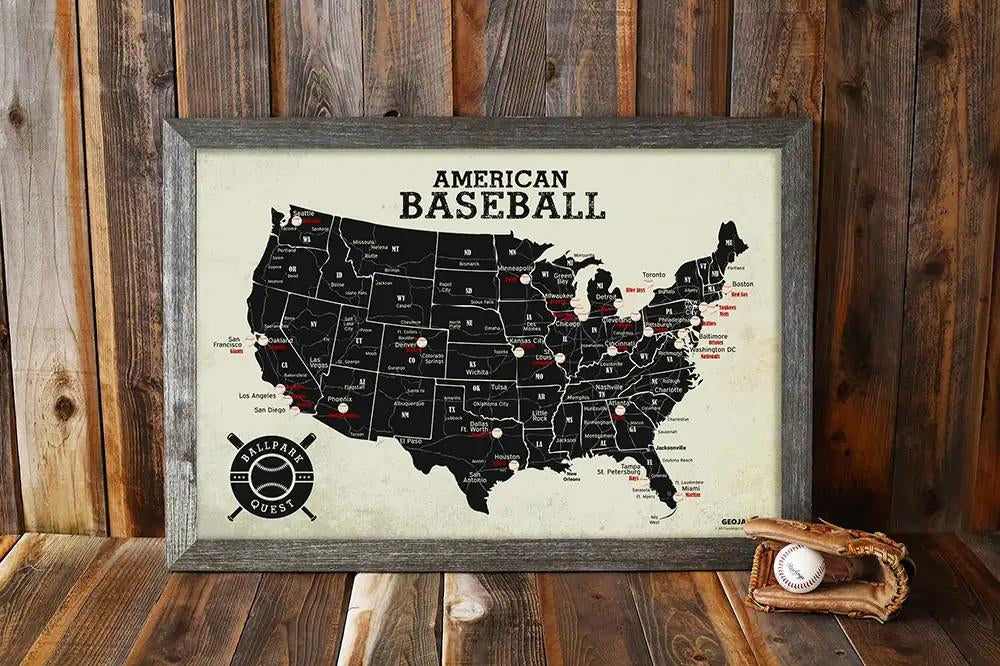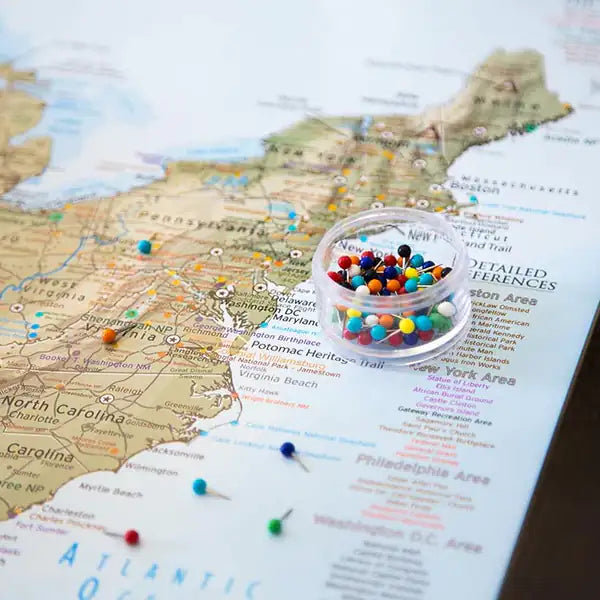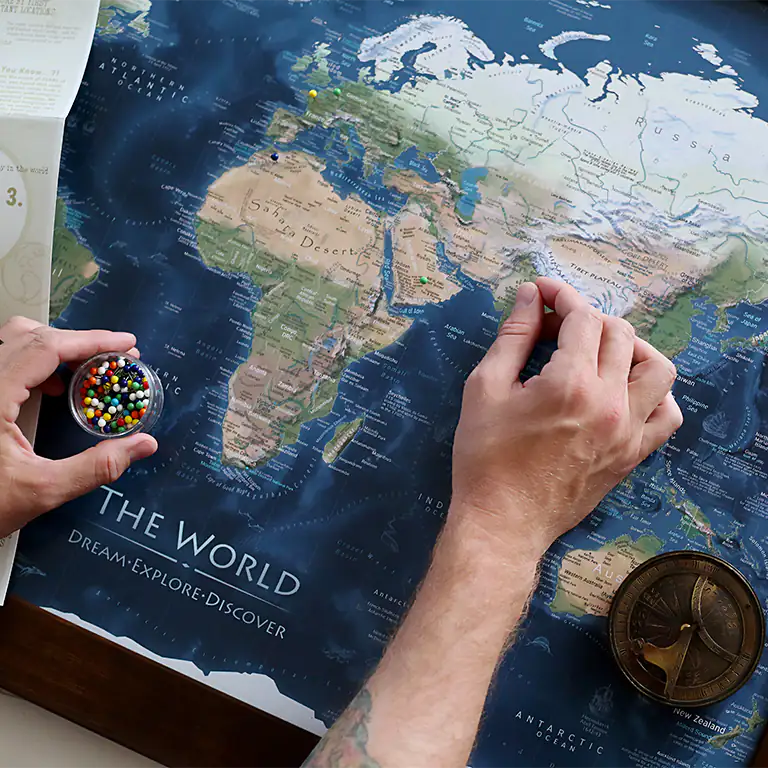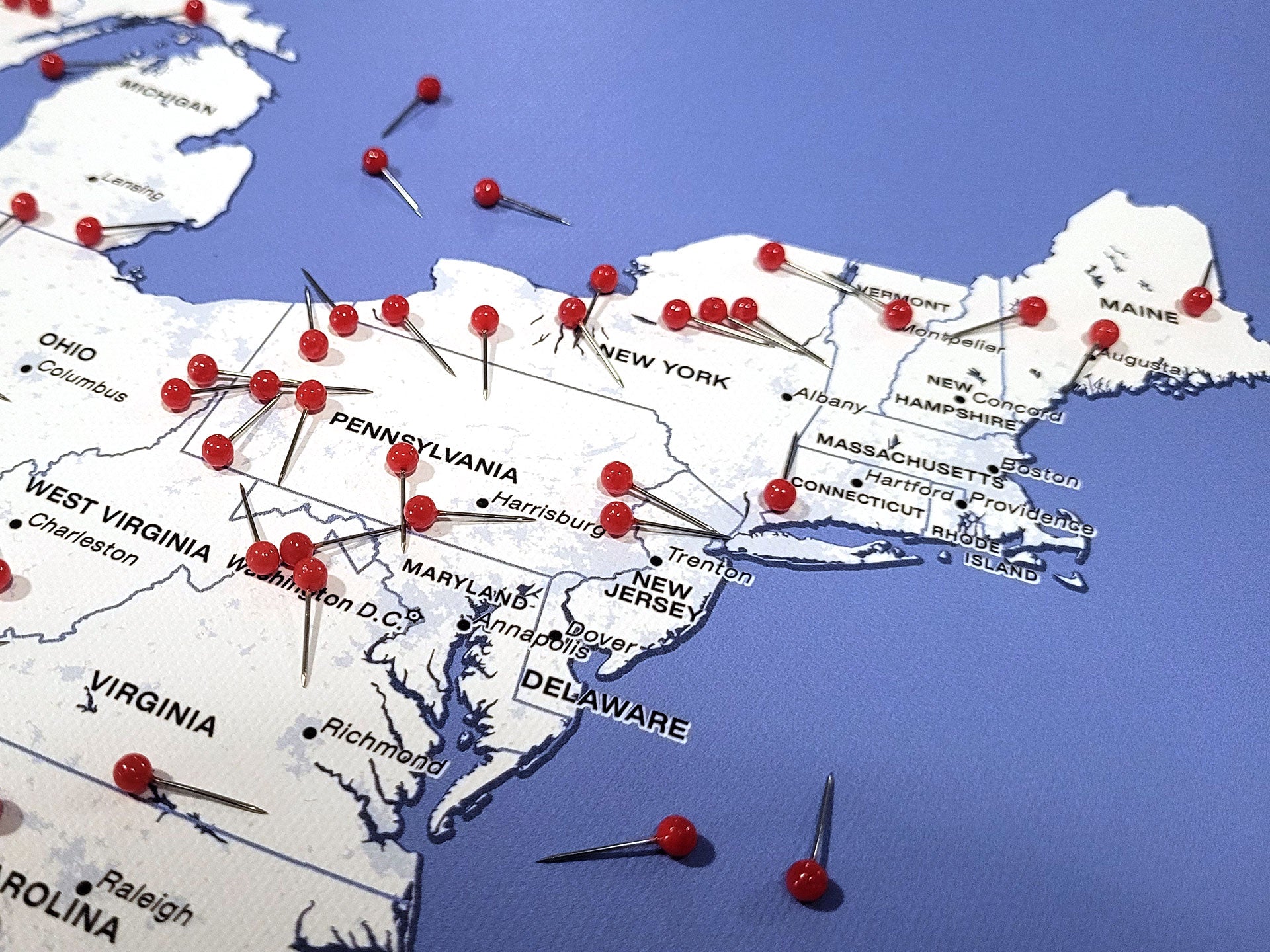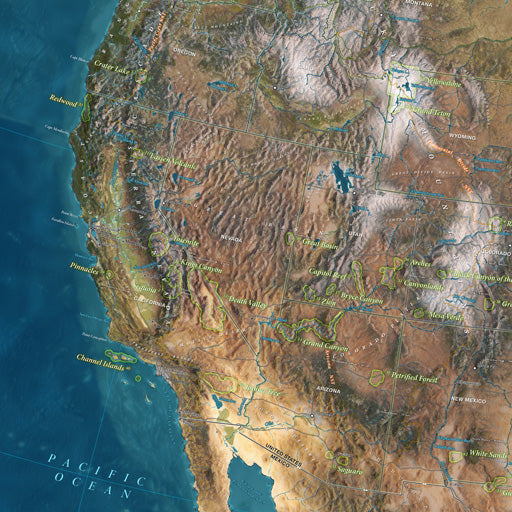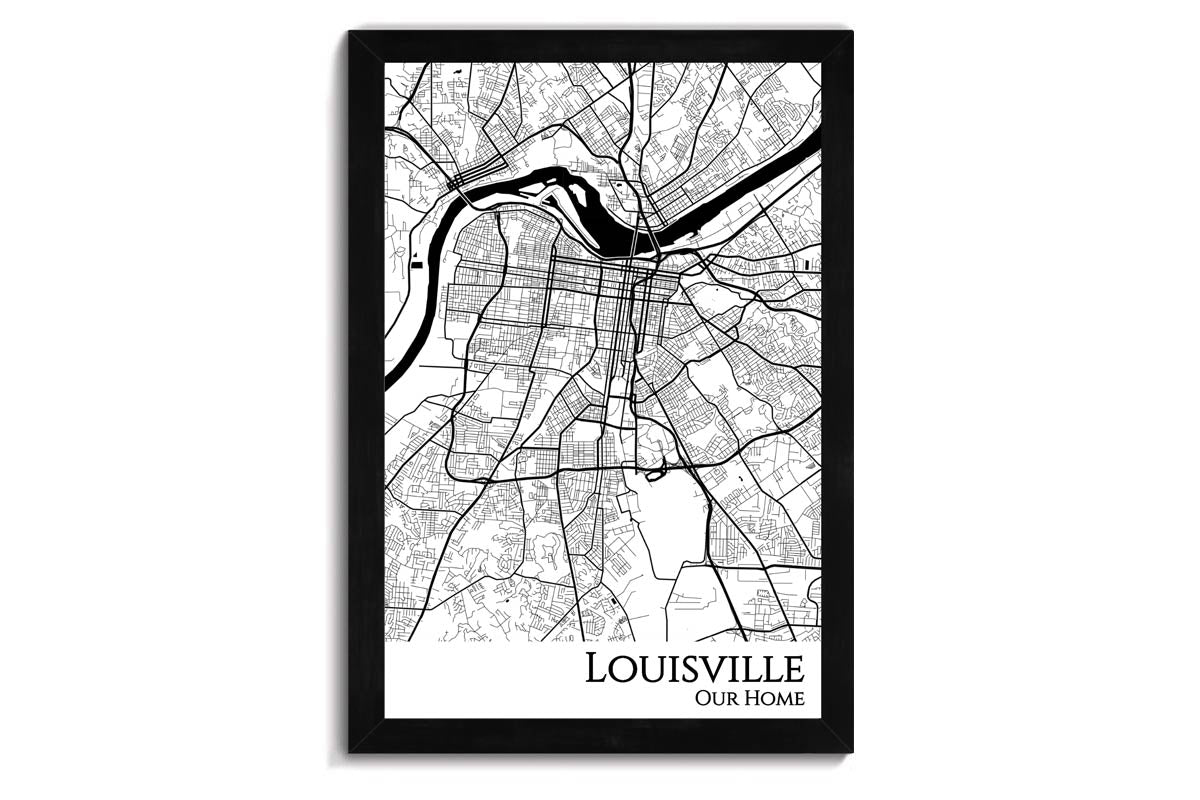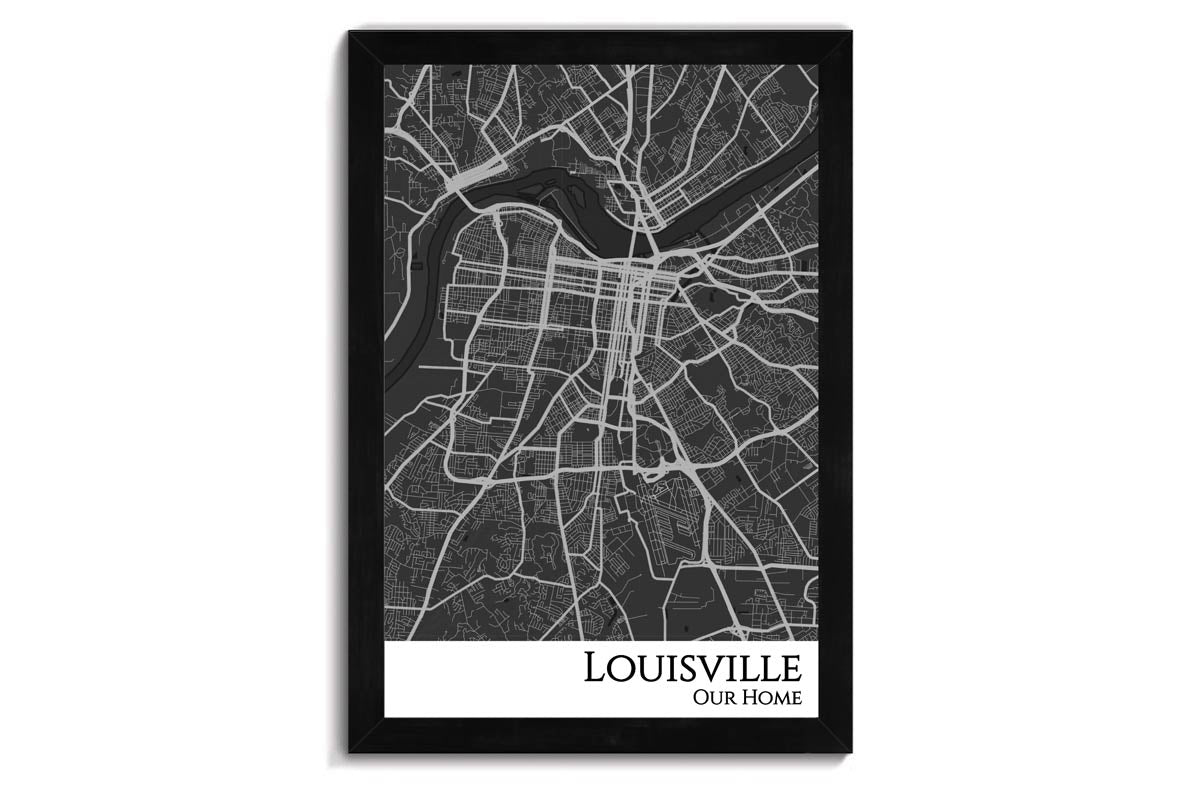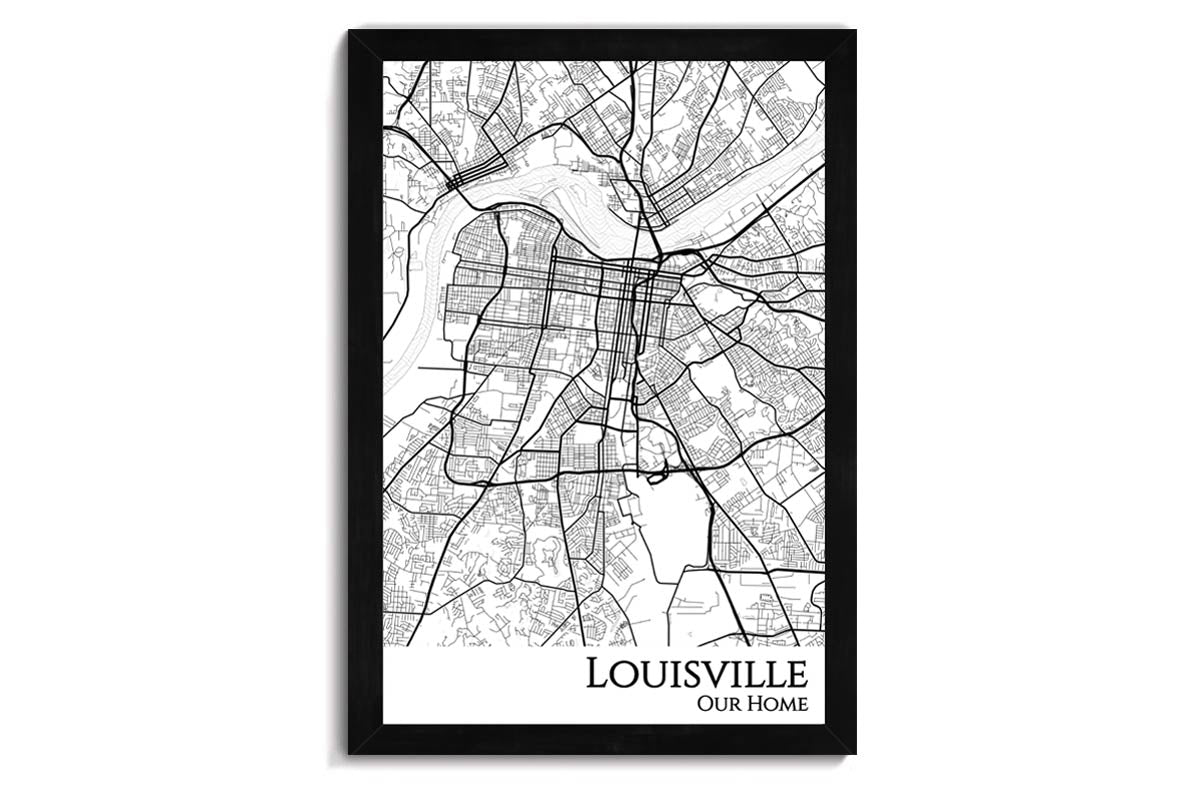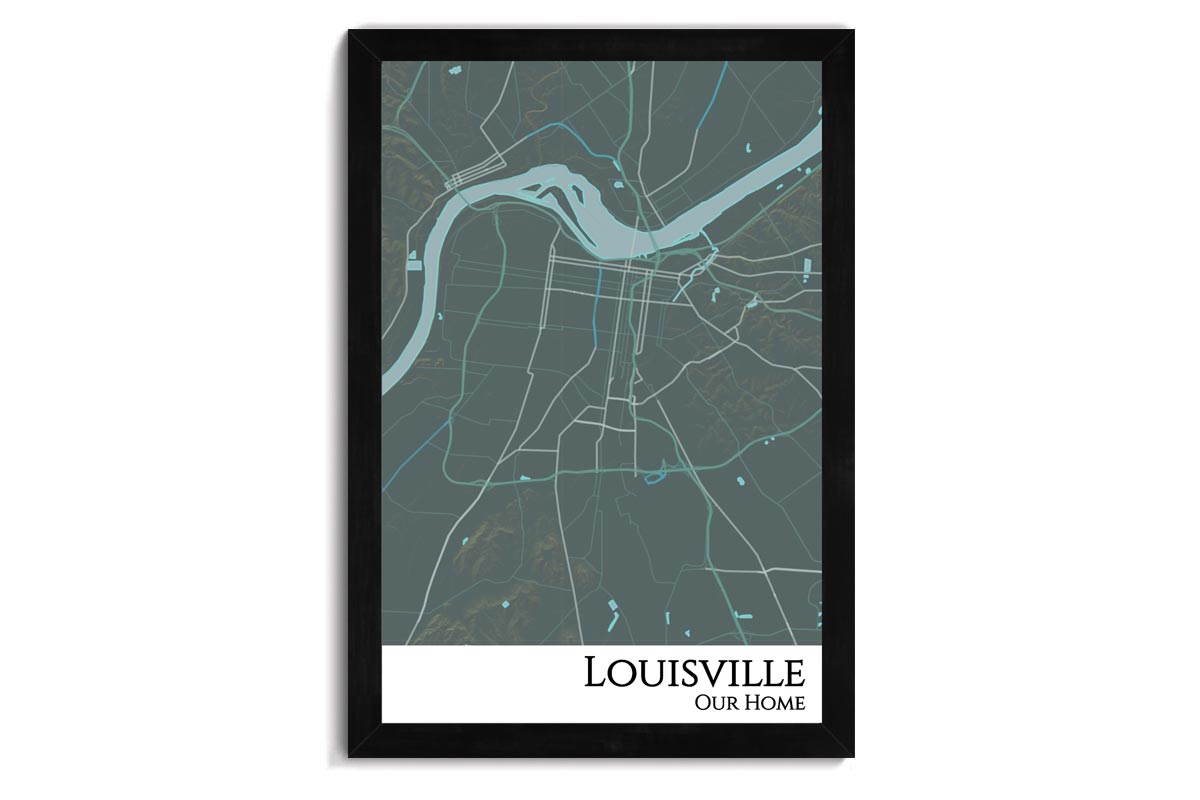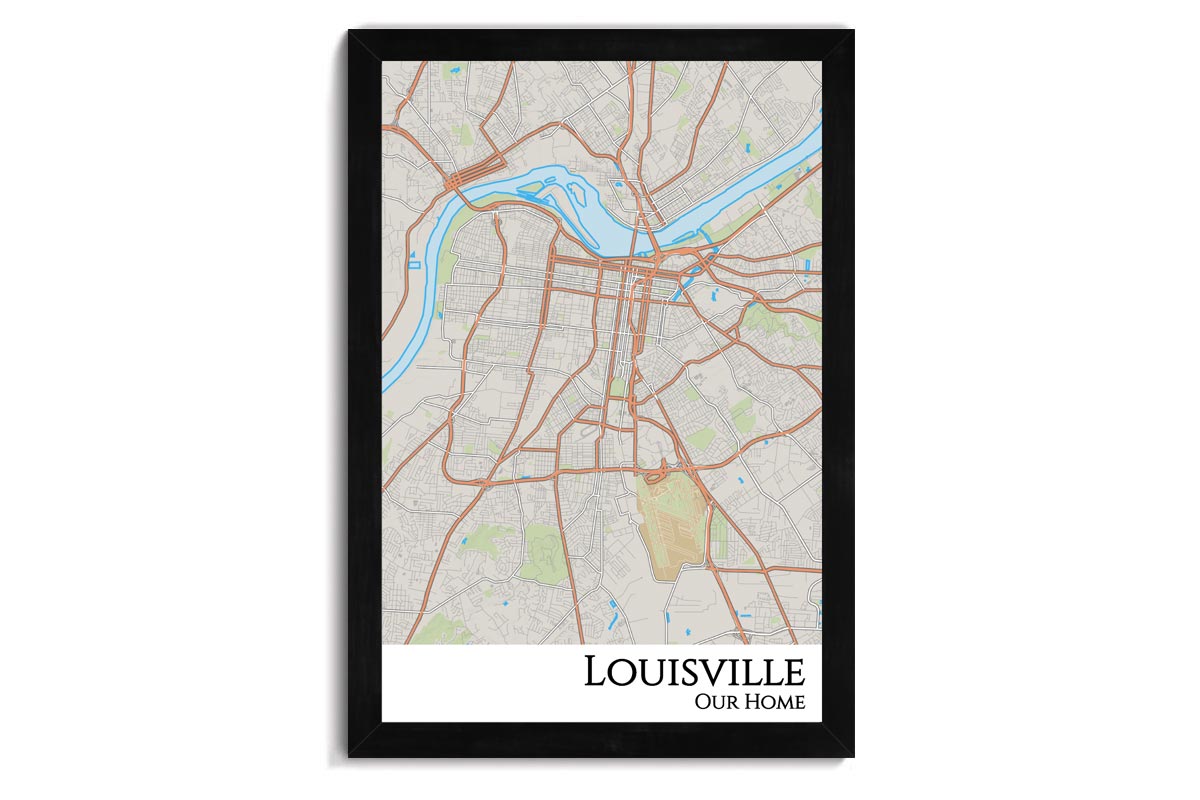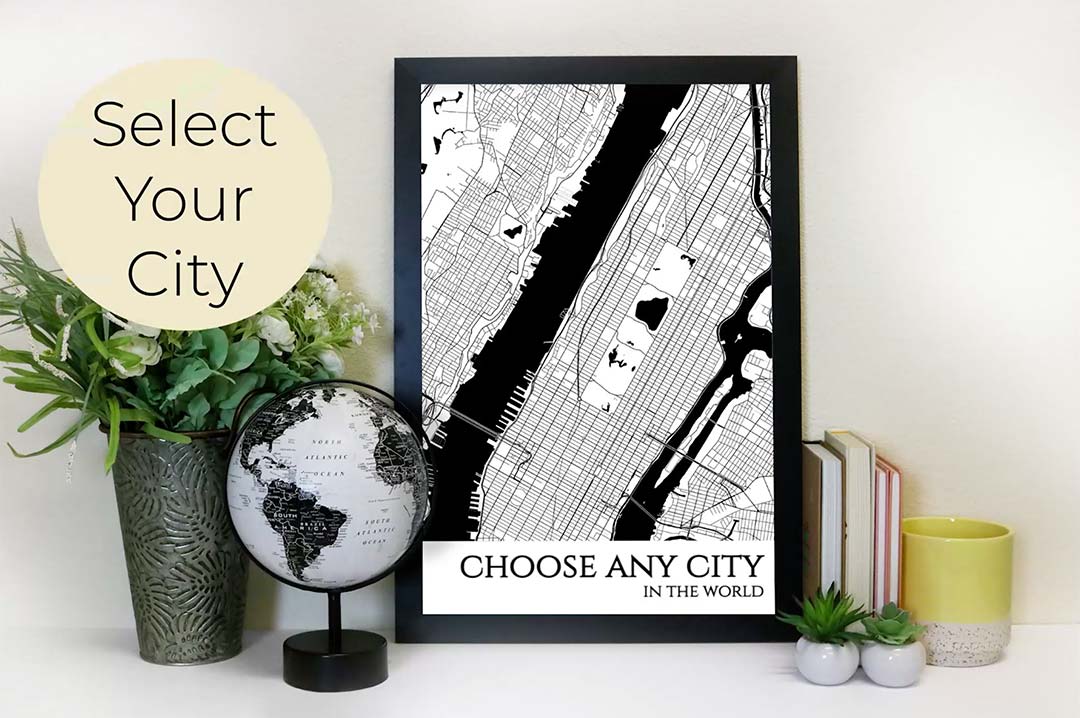About The Map:
Known as the home of the Kentucky Derby, Louisville is celebrated for its delicious comfort foods and famous Louisville Slugger Bats. Bring Derby City to life with our brand new Louisville Map. The impressive details of roads, trails, railways, rivers and more will give you a new perspective of your favorite city. Choose between different map styles, frames, and custom titles.
At GeoJango, we are experts in GIS mapping and developing products of the highest quality display. Each map art print is created using open street maps, a comprehensive world-wide database of roads, streets, and other features. We design each of our five unique styles by programming thousands of layers within each map. In turn, our maps are the most accurate, high-quality and stylish on the market.
Style Options:
Our City Maps come in 5 design options: Toner, Night, Pencil, Ganymede, and Retro.
Toner - This map is our classic black and white style. It is crisp, clean, and the perfect addition to any space.
Night - This style will showcase the nightlife of your favorite city. The variation of grey tones will complement any home.
Pencil - Our etched, pencil design is a crowd favorite. The beautiful ocean pattern and neutral color palette complement any of your favorite cities.
Ganymede - Named after Jupiter’s largest moon, this style is bound to make a statement in any spot. The muted blue and teal tones give this map a unique look that showcases the different streets, topography, and more.
Retro - This option will add the perfect pop of color to any space. The retro map view makes water features, parks, and roadways pop.
Construction: Our Framed City Maps are printed on high quality Photo Satin Paper and can be used with push pins. We mount the map on a high quality pin board using heavy machinery for a lasting bound.
Applications: Decorate your home, office, dorm room, or Airbnb with the city you live in, one you’ve traveled to, or as inspiration for your next adventure.
A Great Gift for: City lovers, adventurers, geography enthusiasts, and college students. This is the perfect wedding, graduation, or holiday gift for everyone!
Optionally Personalize your map:
Make the map truly your own by creating a custom title and subtitle. Be creative and write why that chosen city is special to you.
Quality and Guarantee:
We stand behind our work and guarantee the highest level of construction and quality. Contact us if you have any problems with your map, and we will coordinate to ensure you are happy with your order.
